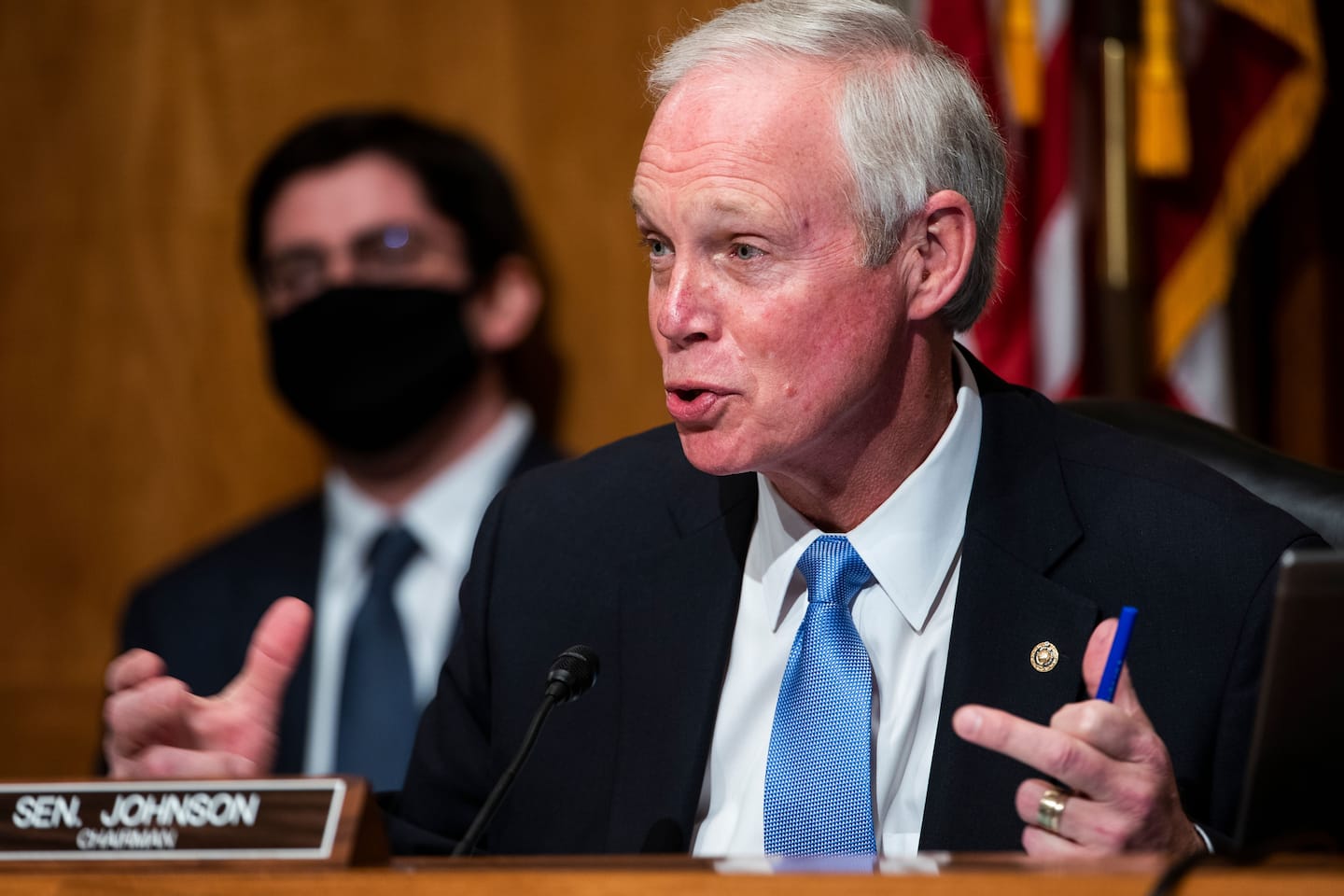How Republicans are spinning their election fraud falsehoods now that many are acknowledging Biden’s win

The message from Senate Republicans seemed to be: Okay, Biden won, but here are reasons we should still maybe doubt it.
“There was fraud in this election,” said Ron Johnson (R-Wis.), chair of the Homeland Security and Government Affairs Committee, who called the controversial hearing and said Monday that he acknowledged Biden’s win. “I don’t have any doubt about that.”
It’s a nebulous argument, made without proof, that allows the receiver to make what they want of it. Coming a day after Biden won the electoral college, it seems like an attempt to bridge Trump and his most hardcore allies, who seem to truly want to believe in widespread election fraud, with the reality that there was none, and with shades in between.
Johnson invited several Trump lawyers who had lost cases in courts in several different states to restate the claims that the courts deemed not credible — including on the merits of the actual fraud claims: that people voted twice, dead people voted, poll workers weren’t allowed to watch, etc.
One lawyer for the Trump campaign who testified Wednesday had his lawsuit thrown out by a Nevada judge who examined the claims and decided that the campaign, for all its efforts, “did not prove under any standard of proof that illegal votes were cast and counted.”
The judge, as many others have, also derided witness statements the Trump campaign submitted about potential fraud as “self-serving statements of little or no evidentiary value.” In other words, useless.
Yet Senate Republicans in this hearing were willing to use the fact that those statements exist to say that something must be wrong if people were willing to make them. They didn’t go as far as Trump in straight-up saying that the election was stolen. But they were willing to inject the question of whether there was fraud deeper into the political conversation, which allows it to be easily conflated with the false claims of a president who has systematically tried to undermine the democratic process at every turn.
“I think it’s the right thing to do to get people to feel comfortable that elections are free and fair,” Sen. Rick Scott (R-Fla.) said of holding the hearing. “And if this one wasn’t that, the next one will be.”
“Fraud happened,” Sen. Rand Paul (R-Ky.) said, without evidence. “The election in many ways was stolen.”
Sen. Josh Hawley (R-Mo.) even tried to use the fact that a majority of Republican voters believe the election was rigged as proof that it might have been: “Yesterday I was talking from the state of Missouri with some of the constituents back at home, a group of about 30 people. Every single one of them, every one of them told me that they felt they had been disenfranchised, that their votes didn’t matter, that the election had been rigged. These are normal, reasonable people. These are not crazy people.”
Democrats invited Christopher Krebs, the former Trump administration election and cybersecurity official whom Trump fired for declaring that the 2020 election was secure. His expertise was in voting machines and whether they were or could be hacked to change people’s votes. He said unequivocally that such claims are baseless.
More broadly, though, he agreed with Democrats that allowing all these questions of fraud to go forward, even just at the level of questions, isn’t helpful to democracy.
“I think that continued assaults on democracy and the outcome of this election only serves to undermine confidence in the process and is ultimately corrosive to the institutions that support elections,” he said.
Krebs also pointed out that many election workers across several states, including Georgia’s secretary of state, have received threats of violence as a direct result of such unfounded fraud claims made by Trump’s side.
“I have significant concerns that the targeted violence against these election workers is going to have a chilling effect on turnout of election workers in the future,” he said.
Republicans are in a transitional phase, politically speaking. Biden won; it’s time to admit it. But their base doesn’t want to acknowledge it. This hearing showcased how Republicans are trying to bridge that gap with circular logic that raises the specter of fraud by using unproven Trump campaign claims about fraud to say there must be fraud. Johnson even framed the hearing as “freedom of thought.”
All the better for Republicans, though, if keeping their voters concerned about Biden’s win helps them try to undermine his presidency next year.
*** This article has been archived for your research. The original version from The Washington Post can be found here ***


